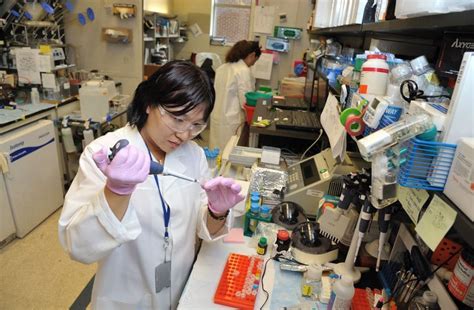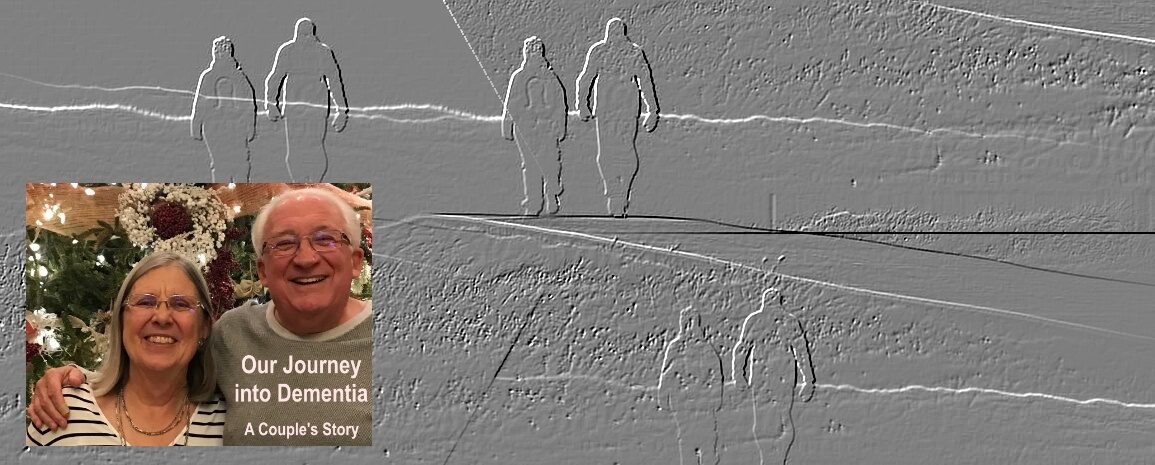If you or a loved one have suffered through a debilitating disease, one thing you probably hoped for was that a cure would come out of the research pipeline in time to help you. Now, that hope is being dashed for families across the United States
This is part of an ongoing series about our family’s experience with dementia. There is no order to it, just observations, reflections and, I hope, some guidance for others on this journey or who may someday begin it. It is not intended as any sort of financial, medical or psychiatric advice. Just one family’s experience…
HAS FEDERAL FUNDING for medical research been frozen or cut? Stalled or eliminated? It’s hard to tell amid the chaos in Washington. The Trump team originally said the National Institute of Health could not release grant funds until new leadership was in place.
Others inside claimed that it went beyond that, and they were told they could not authorize release of any funds, period. Nor could they post any notices that sought applications for new grants, a requirement before meetings can be held to consider them. That basically means current grants cannot be extended and new ones cannot be considered.
The medical research community has taken the positions that the funds, if not eliminated, face the serious prospect of elimination. It has gone to court and the research community has gone full-court-press in explaining just what the loss of research into cancer, cardiac health, diabetes, dementia and other major threats to health could result in.
According to published reports there would be no new advances, promising advances in the pipeline could be lost. Current and future scientists would turn away from the US as research destinations, ceding the creation of future cures and treatments to other nations.
What would it mean to organizations I have had experience with?
The University of Pennsylvania messenger RNA pioneers Katalin Kariko, PhD and Drew Wessman, MD, PhD, in 2023 were awarded the Nobel Prize in Physiology or Medicine. The duo’s research led to an understanding of how to modify mRNA to make it an effective therapeutic, creating a platform used to rapidly develop lifesaving vaccines amid the global COVID-19 pandemic. Their research would not have been possible without federal research grants.
Penn Medicine also has significant research going on in cancer and dementia. Those efforts would stop if the cuts go through. Penn, in the end, would lose some $315 million a year.
Likewise, MDAnderson, based in Houston, TX, where a family member has received lifesaving and life-extending treatment thanks in part to federal funds, receives significant funding from the NIH and other federal sources.
Penn Medicine has a trial to test a drug that could slow the advance of Frontal Temporal Deterioration, which my wife has. She was too far along to participate but for many families looking for a ray of hope these trials are critical.

ON MARCH 21 of last year, bipartisan congressional leaders have announced a $100 million increase for Alzheimer’s and dementia research funding at the National Institutes of Health (NIH) for fiscal year 2024 (FY24). Not so fast.
When Trump (Musk) issued his order that delayed funding or slashed it (see the confusion above) it included directs cuts of tens of thousands of federal government employees. Among those laid off at America’s health agencies are workers at a National Institutes of Health department focused on dementia research.
Firings at the Roy Blunt Center for Alzheimer’s Disease and Related Dementias Research affected roughly a tenth of the nearly 100 employees at the center, but in interviews with ABC News, workers there described a carefully woven web of collaboration that they say could be threatened by the layoffs of just a handful of employees, warning that it could jeopardize progress in answering key questions about dementia. The center is named in honor of former Sen. Roy Blunt, R-MO, who spent years in Congress supporting funding for dementia research.
There are people alive today thanks to research into various diseases. Many cancer patients undergo grueling treatments that extend their lives because they feel a cure may be coming. Many cancer patients are alive today because of drugs that did not exist when they were diagnosed but which do exist today. I have a family member who is an example of that.
I can’t think of anyone who has suffered from a range of diseases, or had loved ones who have, who does not know and appreciate the value of medical research. Those of us who have suffered from these diseases would wish them on no one, and a part of that wish – mine at least – is that cures do come, or at the least ways are found to ease pain.
In the case of my wife, there will be no cures, no extension of life. Dementia is complex, coming in many forms. That means there is not “a cure.” Yet, I wholeheartedly support all the research that is being done into this dreadful disease. My support follows the old saw about an old person planting a tree he or she never will sit in the shade of.
I would urge everyone – regardless of political party – to let their representatives know that cutting medical research is akin to signing death warrants for thousands. It is ripping hope from the souls of all of us who have suffered directly or through the suffering of love ones.
This cannot stand if we are to call ourselves a civilized country.
Rich Heiland, has been a reporter, editor, publisher/general manager at daily papers in Texas, Pennsylvania, Illinois, Ohio and New Hampshire. He was part of a Pulitzer Prize-winning team at the Xenia Daily (OH) Daily Gazette, a National Newspaper Association Columnist of the Year. Since 1995 he has operated an international consulting, public speaking and training business specializing in customer service, general management, leadership and staff development with major corporations, organizations, and government. Semi-retired, he and his wife live in West Chester, PA. He can be reached at [email protected].
